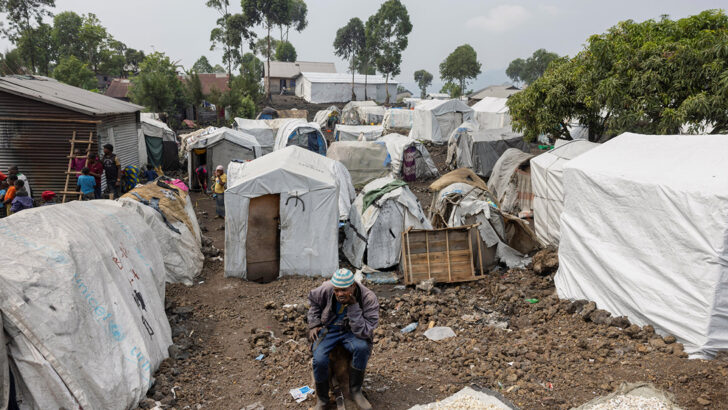As conflict continues to escalate in the Democratic Republic of Congo (DRC), the Catholic Church in Angola has signalled its readiness to welcome refugees fleeing the Central African country.
Sr Carla Luísa Frei Bamberg, Executive Secretary of the Episcopal Commission for the Pastoral Care of Migrants and Itinerants (CEPAMI) in Angola, said the Church, through its Pastoral Care for Migrants, is on alert in border dioceses, particularly Uíge and Mbanza Congo, to welcome refugees.
Fighting between Congolese security forces and militant groups, notably the M23 rebels backed by Rwanda, are driven by the search for territorial control and competition for critical minerals so abundant in eastern Congo. And it is rooted in historical ethnic tensions.
Reports indicate that columns of M23 fighters entered the centre of Bukavu on February 16. According to RFI, they were received by the population as “liberators.” Most of the Congolese armed forces abandoned Bukavu on Friday, leaving behind weapons that were recovered by civilians and bandits.
The rebels entered Bukavu three weeks after conquering Goma – the capital of North Kivu.
The fighting in Goma – in North Kivu – displaced over 400,000 people in three weeks, adding to the over four million already displaced, according to the UN. An estimated 135,000 people have been displaced from the town of Sake alone, contributing to the region’s high number of Internally Displaced Persons (IDPs), estimated to be around 800,000.
M23 released a statement urging the population not to succumb to fear. However, Johan Viljoen, Director of the Denis Hurley Peace Institute of the South Africa Bishops Conference, told Crux that the population has little trust in both the insurgents and the government forces.
“The local population faces threats from both insurgents and the State Armed Forces and does not necessarily view either as liberators. The people of Goma are battle-weary — they have witnessed numerous armed formations come and go. To them, this is just more of the same,” he said.
Angola and the DRC share a long border—approximately 1,500 miles. Controlling the influx of refugees and migrants is increasingly challenging.
“We do not have rigid border control, making it easy and vulnerable for crossings, which could also lead to human rights violations. This is important, concerning, and challenging for us in the Pastoral Care of Migrants,” Sr Bamberg said.
The religious sister mentioned that the wars in Ukraine and the Middle East have drained much of the international humanitarian assistance, making funding for Congo war victims difficult.
Despite these challenges, the Church is prepared to take on the responsibility. Sr Bamberg, a Brazilian-born nun, said that pastoral agents in various dioceses are being trained to welcome refugees and refer them to the competent authorities.


 A displaced Congolese man sits outside his tent at a temporary camp in North Kivu February
3, 2025, days after the M23 rebel group seized the city Goma, forcing thousands to flee and
triggering a wave of looting and deaths. Photo: OSV News/Arlette Bashizi, Reuters.
A displaced Congolese man sits outside his tent at a temporary camp in North Kivu February
3, 2025, days after the M23 rebel group seized the city Goma, forcing thousands to flee and
triggering a wave of looting and deaths. Photo: OSV News/Arlette Bashizi, Reuters. 